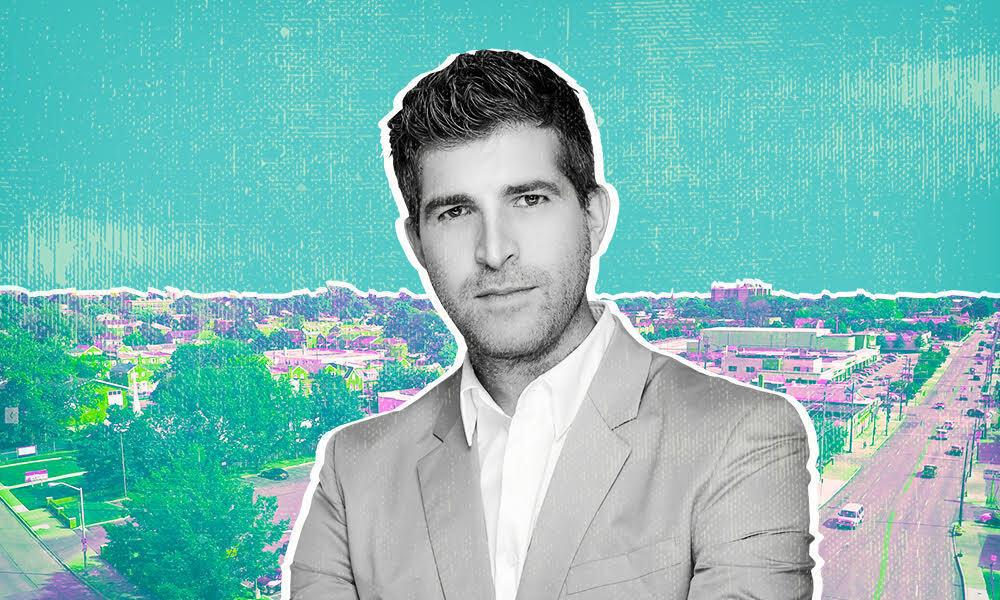The changing landscape of commercial real estate
Former Marcus & Millichap dealmaker Aaron Baum shares details on his newest money-making venture & the future of retail.

He’s charismatic, shrewd, driven and with a vision of the industry that could transform the stodgy landscape of commercial real estate. So it’s easy to see how some people can compare Aaron Baum with Ryan Serhant, the star of “Million Dollar Listing New York” who recently founded his own residential brokerage.
Formerly of Marcus & Millichap, investment professional Baum quit in 2019 to form SAB Capital, a real estate investment sales brokerage firm based out of New York City. In 2020, Baum joined forces with former Honigman LLP partner Jason Fisher to launch One Family Property Real Estate (OFP).
In January, OFP closed on its first 2021 acquisition — a net-leased investment in a Cleveland, Ohio, metro market, tenanted by Walgreens Boots Alliance. This is evidence of the direction Baum wants to take. By acquiring investments with long-term leases in place, OFP suggests it will favor stability over risk. Today, a guarantee of predictable returns makes for a more appealing proposition. It may not make for sexy headlines, but in these turbulent times for retail, reliable can be sexy too, according to Baum.
“I get it — it’s headlines, it’s marketing,” he said when asked about the noise generated by some of his rivals. “Whatever, I’m not losing sleep over it.”
Instead, he is focusing on his opportunities and taking on investments others pass up. The master plan is “to take advantage of an expertise in a market that has largely been untapped and unnoticed. Which is still the case.”
Net-lease retail is an oft-overlooked sector of the market. There’s little reason to see things changing in the wake of the Covid-19 pandemic. Which is fine as far as Baum is concerned.
“I know there is this taboo around retail and what is happening in the world with it,” he says. “We are all quick to forget that during the pandemic, our groceries and deliveries were coming from somewhere — likely a retail grocery store or supermarket.”
Baum is quick to point out the fallacy of inferring marketwide failure based on a few high-profile cases.
“You see luxury brands like Neiman Marcus or Barneys closing down their doors, but that’s a different market. Take Dollar Tree. They do about $22 billion in revenue — continuing to grow year over year. They are not going to be the next Barneys.”
Further, while many retail stores may be shuttered because of the pandemic, goods still have to get to customers.
“You have hundreds of millions of people in this country alone, and you’re going to need ways to get the product to the individual. That might be Uber, Deliveroo, DoorDash or whatever it is, but it still has to come from somewhere. Whether that’s a retail location on Main and Main or it’s down the street from a distribution center.” Part of Baum’s willingness to break the mold and think outside of the real estate box comes a certain outsider status.
Baum isn’t the scion of one of the old real estate kings. He was influenced by his father, though: “He was one of the largest Burger King operators in Michigan at one time, starting with one location. My father’s father was in the restaurant business, too. So, you could say it’s in my family’s heritage.”
But Baum isn’t mired down by sentimentality. He notes that the Main Street of 20 years ago — with its bank branches, bookstores and video rental stores — is different from today’s, just as the future will likely see fewer small businesses and less need for Main Street retail. But with change comes opportunity.
Baum anticipates new business models where “you still need space — but you don’t need Main and Main. So, I think it will stir up more entrepreneurship, which is great. That’s one of the silver linings. People will band together to reinvent the current environment and make things better and more efficient.”
And this is where OFP comes in. “We are a young, hungry but very patient company. Our board is led by seasoned executives and very respected businessmen and women. Our goal is to acquire $150 million this year; if we acquire $250 million, no one will be disappointed.”
And what about those who still insist the retail market is dead?
“Ever heard of Walmart?”

